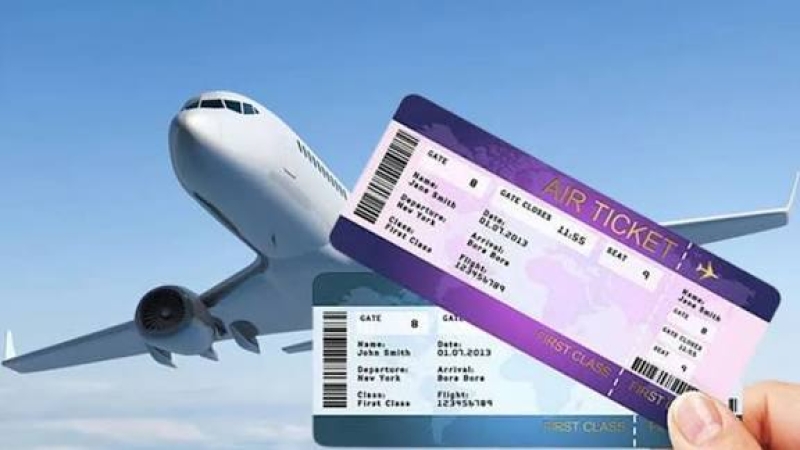- Tk 3.38cr Project to Restore Sonadia’s Biodiversity |
- Global Emissions Fall Slowly, Experts Urge Renewables Push |
- Hurricane Melissa: UN Appeals $74M to Aid 2.2M in Cuba |
- Doha Summit Stresses Urgent Investment in People and Peace |
- Sand syndicates tighten grip on Bangladesh's northern region |
Govt plans law to punish airline ticket syndicates in Bangladesh

The government of Bangladesh is set to promulgate an ordinance amending the Civil Aviation Act, 2017, to curb the activities of airline ticket syndicates.
The Ministry of Civil Aviation and Tourism has drafted the Civil Aviation (Amendment) Ordinance, 2025, in this regard, according to sources at the ministry.
Under the proposed amendment, any travel agency found charging passengers more than the approved fare will be required to pay up to three times the excess amount as compensation.
Besides, hoarding air tickets to create an artificial crisis or selling them at inflated prices for profit will be treated as a criminal offence, punishable by a minimum of two years and a maximum of five years’ imprisonment, or a fine of up to Tk 50 lakh, or both.
The draft also proposes the formation of a Civil Aviation Economic Commission to determine various fees, charges and tariffs.
According to the draft, no ground operator will be permitted to operate in Bangladesh without proper registration.
An official of the Ministry of Civil Aviation and Tourism, seeking anonymity, said the draft of the Civil Aviation (Amendment) Ordinance has been prepared and that opinions from relevant stakeholders are being sought.
Once finalised, it will be presented to the Council Advisers for approval.
Sources said a powerful syndicate has developed around airline ticketing, particularly for routes to Middle Eastern countries where Bangladeshi migrant workers travel frequently.
Due to long-standing irregularities, the government has often found it difficult to take effective action against such groups, prompting the decision to amend the law.
The proposed law stipulates that charging passengers beyond the approved tariff will constitute an offence.
The responsible travel agency will be required to refund up to three times the excess amount as compensation to the affected passenger.
Regarding tariff submission and approval, the amendment states that all air operators must submit their minimum and maximum tariffs for every route and class to the chairman at regular intervals.
The chairman will approve the tariffs upon satisfaction. If monopolistic practices, abnormal price hikes or artificial shortages are observed on any route, the chairman may take necessary measures in the public interest to set reasonable fares.
The newly proposed Civil Aviation Economic Commission will recommend to the government different types of fees, charges, royalties, premiums and rents based on factors such as airport location and the nature of aircraft and air operators.
These recommendations will, however, not be binding on the government.
Based on these recommendations, the government will fix the applicable fees and charges, which will be published in the schedule by the chairman under the Civil Aviation Authority Act, 2017.
The commission will also have the authority to resolve disputes between air operators and the Civil Aviation Authority regarding fees, charges and other payments determined by the government.
The ordinance also empowers the government to frame regulations concerning the appointment of General Sales Agents (GSAs) by foreign operators, Global Distribution Systems (GDS), air transport and environmental protection, and the functioning of the Civil Aviation Economic Commission.
Under the current law, foreign air operators wishing to offer commercial air transport services in Bangladesh must appoint a GSA that is 100% owned and registered by a Bangladeshi citizen.
The draft amendment proposes that any foreign air operator seeking to operate in Bangladesh may either establish its own office in the country or appoint one or more GSAs that are fully Bangladeshi-owned and registered. Domestic airlines may also appoint GSAs if deemed necessary.
The ordinance further states that no ground operator will be allowed to operate in Bangladesh without registration. Operators must apply to the chairman following prescribed procedures, and registration certificates will be issued upon fulfillment of the necessary requirements.
Similarly, no Global Distribution System (GDS) will be permitted to operate in Bangladesh without registration.
Registered GDS operators must allow the chairman to audit and access booking and pricing data regularly.
If any registered GDS is found to be misused against the public interest, the chairman may suspend or cancel its registration while ensuring that all existing bookings remain protected, according to the proposed ordinance, reports UNB.

